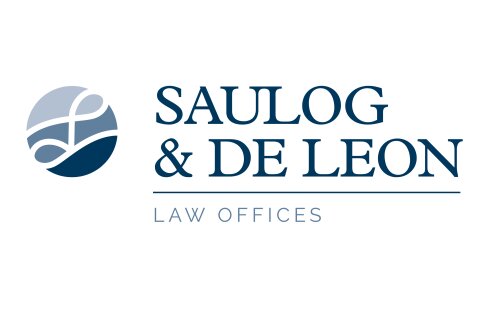Best Oil, Gas & Energy Lawyers in Philippines
Share your needs with us, get contacted by law firms.
Free. Takes 2 min.
Or refine your search by selecting a city:
List of the best lawyers in Philippines
About Oil, Gas & Energy Law in Philippines
The oil, gas, and energy sector in the Philippines plays a crucial role in driving the nation’s economic development. The country has a diverse energy mix, with oil, natural gas, coal, and renewables like solar and wind energy contributing to its supply. The legal framework governing this sector is designed to regulate exploration, development, and utilization of energy resources while ensuring sustainable practices. With both local and international stakeholders involved, the sector is subject to complex regulatory requirements and environmental considerations.
Why You May Need a Lawyer
Individuals or businesses involved in the oil, gas, and energy sector in the Philippines may face various situations requiring legal assistance. Here are some common scenarios:
- Regulatory Compliance: Navigating the regulatory landscape and securing the necessary permits and licenses.
- Contract Negotiations: Drafting, reviewing, and negotiating contracts and agreements with stakeholders and service providers.
- Environmental Concerns: Ensuring compliance with environmental laws and regulations to avoid penalties.
- Land Acquisition: Legal assistance in acquiring land for exploration and development purposes.
- Dispute Resolution: Resolving disputes with contractors, partners, or regulatory bodies.
- Corporate Structuring: Advising on the optimal corporate structure for ventures or investments.
Local Laws Overview
The oil, gas, and energy sector in the Philippines is primarily governed by several key laws and regulations:
- Presidential Decree No. 87 (The Oil Exploration and Development Act of 1972): Governs exploration and development of petroleum resources.
- Republic Act No. 9136 (Electric Power Industry Reform Act of 2001): Aims to restructure the electric power industry and promote competition.
- Renewable Energy Act of 2008: Promotes the development, utilization, and commercialization of renewable energy resources.
- Philippine Clean Air Act of 1999: Sets standards to protect the environment from air pollution.
- Energy Regulatory Commission (ERC) regulations: Various guidelines and rules governing energy activities.
Frequently Asked Questions
What is the role of the Department of Energy in the Philippines?
The Department of Energy (DOE) is responsible for policy-making, planning, and regulating activities related to energy exploration, development, utilization, and conservation.
How does the government support renewable energy initiatives?
The government offers various incentives such as tax holidays, duty-free importation of renewable energy machinery, and feed-in tariff rates to encourage investment in renewable energy projects.
What are service contracts in the oil and gas sector?
Under a service contract, the government grants the contractor the rights to explore, develop, and produce petroleum resources in a specified area.
Who regulates the electricity industry in the Philippines?
The Energy Regulatory Commission (ERC) is the main body that regulates and enforces policies for the electricity sector in the Philippines.
What are the environmental concerns related to energy projects?
Environmental concerns include pollution, degradation of natural habitats, and non-compliance with environmental laws which can lead to penalties and legal disputes.
How important is community consultation for energy projects?
Community consultation is crucial as it ensures that the concerns and welfare of local communities are considered and addressed, fostering cooperative relationships and reducing legal conflicts.
Can foreigners invest in the oil and gas industry in the Philippines?
Foreigners can invest in the industry but there are restrictions on ownership and certain aspects of operations as outlined by Philippine law.
How are energy tariffs determined?
Energy tariffs are determined based on regulations set by the ERC, considering factors such as production cost, investment returns, and consumer protection.
What are the penalties for non-compliance with energy laws?
Penalties may include fines, suspension of operations, and legal actions depending on the severity of the violation.
What is the role of the Philippines National Oil Company (PNOC)?
PNOC is involved in oil, gas, and other energy-related operations, playing a key role in implementing government energy policies and projects.
Additional Resources
For further assistance in the field of oil, gas, and energy, you may refer to the following resources:
- Department of Energy (DOE): The official website for regulations and updates in the energy sector.
- Energy Regulatory Commission (ERC): Resource for various rules and guidelines in the electricity industry.
- National Commission on Indigenous Peoples (NCIP): Information on the rights of indigenous peoples affected by energy projects.
- Philippine Energy Plan Documents: Detailed energy plans and policy guidelines available through DOE publications.
Next Steps
If you require legal assistance in the oil, gas, and energy sector in the Philippines, consider taking the following steps:
- Consult with a specialized attorney with experience in energy law to evaluate your legal needs.
- Gather all relevant documents and details pertaining to your situation or project.
- Contact local law firms or legal service providers specializing in the energy sector for proposals or consultations.
- Stay informed about the latest regulations and legal requirements within the energy industry.
- Attend industry conferences or seminars for networking and up-to-date industry insights.
Lawzana helps you find the best lawyers and law firms in Philippines through a curated and pre-screened list of qualified legal professionals. Our platform offers rankings and detailed profiles of attorneys and law firms, allowing you to compare based on practice areas, including Oil, Gas & Energy, experience, and client feedback.
Each profile includes a description of the firm's areas of practice, client reviews, team members and partners, year of establishment, spoken languages, office locations, contact information, social media presence, and any published articles or resources. Most firms on our platform speak English and are experienced in both local and international legal matters.
Get a quote from top-rated law firms in Philippines — quickly, securely, and without unnecessary hassle.
Disclaimer:
The information provided on this page is for general informational purposes only and does not constitute legal advice. While we strive to ensure the accuracy and relevance of the content, legal information may change over time, and interpretations of the law can vary. You should always consult with a qualified legal professional for advice specific to your situation.
We disclaim all liability for actions taken or not taken based on the content of this page. If you believe any information is incorrect or outdated, please contact us, and we will review and update it where appropriate.
Browse oil, gas & energy law firms by city in Philippines
Refine your search by selecting a city.














